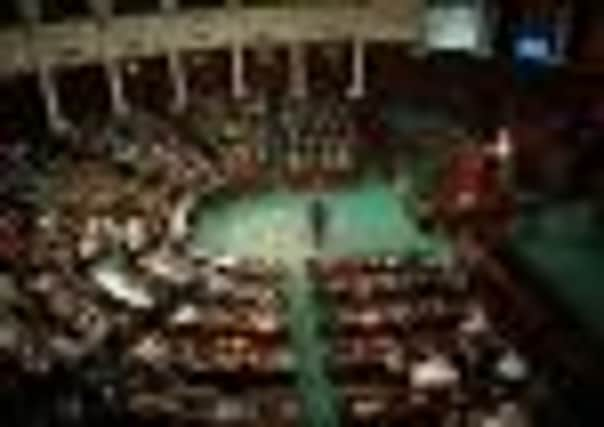Libya set to purge Gaddafi-era bureaucracy


Protests erupted around parliament, the national congress, this week amid rumours that members were considering watering down the political isolation bill that would lead to officials being removed from 36 categories of government work.
Judges, politicians, bankers, oil executives, army officers and civil servants all face the axe under the bill, which would represent one of the most comprehensive purges of any post-Arab Spring state.
Advertisement
Hide AdAdvertisement
Hide AdHowever, there is anxiety that the purges will cause further confusion in an already chaotic governing machine, and that many will be unfairly sacked.
“If we isolate, we should isolate behaviour, not persons,” said Zeinab El-Tarqi, vice-president of the National Forces Alliance, the centre-right party that won the largest number of seats in last year’s elections. “We should not be having this debate now. We need to heal the nation.”
Squabbles and disagreements saw parliament deadlocked this week, imposing a fortnight delay to a planned vote on the bill, with further protests expected. Among the winners of any purge would be the Muslim Brotherhood’s Justice and Construction Party, which has support among long-term Gaddafi opponents.
The argument is threatening to re-open the split between pro- and anti-regime forces that saw Libya engulfed in an eight-month revolutionary war two years ago.
Among the supporters is independent MP Dr Mohamed Sammu, from former pro-rebel eastern Tripoli, who insists the purges are aimed only at removing Gaddafi-figures from management.
“The idea is, if you worked with the [Gaddafi] regime, you have the ideas of the regime, so we ask you now, you can be with us, but don’t lead us,” he said.
Human Rights Watch has warned the purge could turn into a witchhunt. “Bans on public office and senior positions should be based on provable misdeeds, and not a general association with the former regime,” said the organisation’s Fred Abrahams.
Pent-up public anger is strong. This week former inmates of Abu Salem prison, some of whom spent years under torture, protested outside parliament that those who ran the previous system should be barred from running the new one.
Advertisement
Hide AdAdvertisement
Hide AdSupporters point out that the issue is not just moral, but practical: the current government has inherited a dysfunctional civil service with officials that have no experience of running a modern state, and reform is stalled.
As the bill stands, it would mean a clean sweep of the top layer of Libya’s body politic. Both prime minister Ali Zaidan and his political ally Mohammed Magariaf, speaker of congress, were Gaddafi-era diplomats before defecting in the 1980s to lead exile political movements. Under the proposed bill, both might be barred from office, as would Mahmoud Jibril, leader of the NFA.
Mohammed Toumi, chairman of the so-called 19 Committee, made up of 19 MPs who drafted the law, insists that the final bill will be less draconian, but that his committee remained too divided to agree on exceptions, such as recognising the contributions of Mr Magariaf, who escaped assassination attempts by the Gaddafi regime.
“This is not a way of punishing people or condemning them,” said Mr Toumi. “[But] after a war like the Libyans had, we have to build a new country. We have to have a different system.”